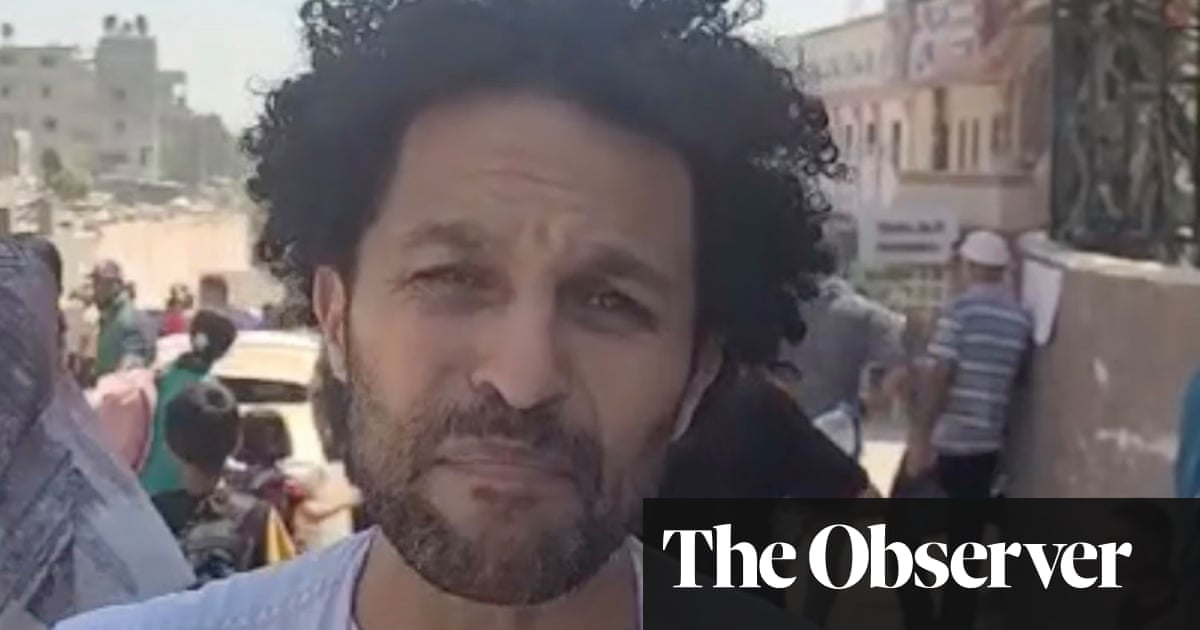Stopped at a checkpoint for riding a motorcycle without a helmet, Genivaldo de Jesus Santos, 38, was forced into the boot of a police car by three police officers, who sprayed pepper spray and teargas into the confined space.
With dozens of bystanders watching – some of them shouting “You’re going to kill him” and warning that De Jesus was mentally ill – the officers kept him in the makeshift gas chamber for 11 minutes and 27 seconds in 2022 in the north-eastern Brazilian state of Sergipe.
When they finally took him to hospital, he was already dead from asphyxiation and respiratory failure, a coroner’s report later found. He left a wife and a seven-year-old son.
Two years later, the former officers – who were all dismissed from the federal highway police in 2023 – have been sentenced to prison terms ranging from 23 to 28 years for murder.
In 2022, the case immediately drew comparisons to the murder of George Floyd in the US – not only because it involved a Black man being suffocated to death by police, but because it occurred on exactly the same date two years later.
Even within Brazil, De Jesus’s death caused much less public outcry than Floyd’s, and experts are still trying to understand why – in the country with the largest Black population outside Africa – that was the case.
After Floyd’s death in Minneapolis, protests erupted across Brazil – as they in other parts of the world – and social media profiles of both Black and white artists were flooded with black squares.
When De Jesus died, however, reactions on social media and in the streets were confined mainly to Black movements or artists connected to the cause. Even the news of Saturday’s convictions went for the most part unnoticed.
“There was nothing here even remotely comparable to the outcry sparked by Floyd’s death,” said historian Ynaê Lopes dos Santos, a professor at the Federal Fluminense University.
It was precisely the Brazilian reaction to the American’s death that inspired her to write a book narrating the country’s history through the lens of racism.
“A narrative of ‘surprise’ emerged here as if Floyd’s death was completely unfamiliar to us,” said Lopes dos Santos, who published the book in 2022.
Despite making up 55% of Brazil’s population, Black people account for 87.8% of victims of police violence, according to a report published in November.
Lopes dos Santos believes there are at least two reasons why the outcry was much greater for Floyd’s death.

One is the persistent idea among Brazilians that, due to its racial mixing, Brazil is a “racial democracy” and that, because it never had segregationist laws, the South American country is not as racist as the US.
The other reason is the grim reality that the constant killing of Black people by law enforcement agents has “unfortunately become part of our idea of normality,” she said.
Cases like those of Floyd and De Jesus are frighteningly common: just last week, footage circulated of an off-duty police officer shooting an unarmed man in the back 11 times after he had stolen cleaning supplies in São Paulo. This incident was among a string of recent cases of police violence that have been piling up in Brazil’s wealthiest and most populated state.
“It’s ‘normal’ to kill Black people in Brazil, so living with this is something ingrained in our civic experience, which is terrifying,” said Lopes dos Santos, who mainly attributes this to the country’s history of slavery: Brazil imported more enslaved Africans than any other country during the transatlantic slave trade and was the last country in the Americas to abolish slavery.
“The same young Black man who, in the past, Brazilian society only valued as a good enslaved person is now the one they want to kill because he is not considered useful as a citizen,” said the historian.
At the 11-day trial of De Jesus’s killers, the victim’s mother said the entire family died with him that day.
“He was such a good son,” Maria Vicente de Jesus told the newspaper Folha, adding that the former police agents never apologised to her or their family. “I suffer every day and ask myself why they did this to my child,” she said.

.png) 1 month ago
9
1 month ago
9













































